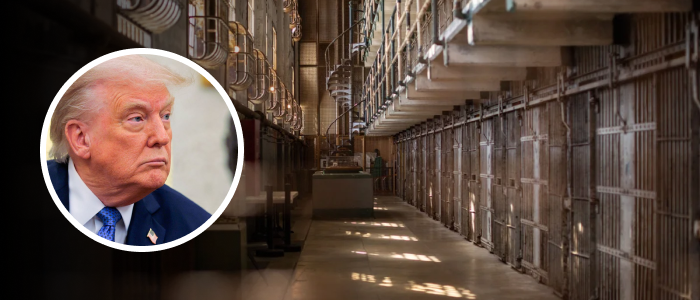The State Department increased the threat level in two countries as it warns Americans to steer clear of them as they plan late spring break trips. The threat level in both countries has been raised to level 4, at least for some regions of each, which means "do not travel ." Americans are being warned that traveling to those regions could place their lives in significant danger.
The upgraded warnings follow a spate of crime, terrorism and civil unrest in both countries or specific regions of both that has the State Department worried about the safety of American travelers to both regions. But what countries have been upgraded to the highest threat level? And why were those regions given that designation? The State Department's overall threat level for Colombia is 3, which urges Americans to "reconsider travel" — but doesn't outright ban it. Some regions of the country, however, were just upgraded to level 4.

"Reconsider travel to Colombia due to crime, terrorism, civil unrest and kidnapping," the department wrote in a travel advisory on its website. "Some areas have an increased risk," it added, imploring people to read the entire advisory. Specifically, the State Department is cautioning Americans not to travel to Arauca, Cauca, with the exception of Popayán, as well as Norte de Santander, because of crime and terrorism plaguing those regions.
Click here to follow the Mirror US on Google News to stay up to date with all the latest news, sports and entertainment stories. The Colombia-Venezuela border region was also declared off-limits because of crime, kidnapping and conflict between armed groups. There's also a high risk of detention in the region.
"Violent crime, like murder, assault, and robbery, is common in many areas in Colombia. In some places, organized crime is rampant. This includes extortion, robbery, and kidnapping," the department wrote.
"There is risk of terrorist violence, including terrorist attacks and other activity, in Colombia." Political demonstrations are also common in Colombia, the department warned, and can lead to road and highway closures, which then reduce access to public transportation and interrupt travel between cities. Violence and death can also result from the protests if they escalate.
DAILY NEWSLETTER: Sign up here to get the latest news and updates from the Mirror US straight to your inbox with our FREE newsletter. U.S.
government employees are prohibited from going to Colombia's land borders with neighboring countries without special authorization, from using motorcycles and from using street taxis or other forms of public transportation that aren't prearranged. The State Department issued specific travel advisories for the aforementioned level 4 threat areas. For Arauca, Cauca (excluding Popayán) and Norte de Santander, the department wrote, "Do not travel to these areas for any reason.
Violent crime, like armed robbery and murder, is common in these locations. Terrorist groups are active in some areas here. Due to the risks, U.
S. government employees working in Colombia are prohibited from traveling to these areas." Of the Colombia-Venezuela border region, the department wrote, "Do not travel to this area for any reason.
Crime, kidnapping, and armed conflict are common here. Do not cross the border into Venezuela from Colombia. You may be detained by Venezuelan authorities.
" It added: "Due to the risks, the U.S. government has limited ability to provide emergency services to U.
S. citizens here." It added that the border isn't clearly marked, either, so it can be easy to travel into Venezuela accidentally.
Venezuela has a travel advisory in place with a level 4 threat. The State Department wrote of the country, "U.S.
citizens trying to enter Venezuela without a visa have faced terrorism charges. They have been held for long periods." The entirety of the African country Burkina Faso is under a level 4 threat, with the State Department urging Americans not to travel to the region.
"Do not travel to Burkina Faso for any reason due to terrorism, crime, and kidnapping," the department wrote. "Terrorist organizations continue to plan and conduct terrorist activities throughout Burkina Faso." Terrorism was listed as the main reason tourists should avoid the country, with the department stating that attacks can occur "anywhere with little or no warning.
" Terrorists "may utilize various tactics, including the use of common, commercially available items or the use of kidnapping for ransom," the department added. "The threat of kidnapping remains persistent throughout Burkina Faso, including in Ouagadougou and especially in the Sahel and East regions," the travel advisory reads. Several regions of the country are under states of emergency, too, including the Sahel and East regions, the provinces of Kossi and Sourou, Kenedougu, Loroum and Koulpelogo.
"Due to the risks, the U.S. government is unable to provide emergency services to U.
S. citizens in most of the country. U.
S. government employees working in Burkina Faso are prohibited from traveling to regions outside the capital due to security concerns," the State Department wrote. "Due to a historically high crime rate, the U.
S. Embassy discourages U.S.
government personnel from nighttime travel to the Balkiui and Rayongo (also known as Dayongo) neighborhoods of Ouagadougou’s Arrondissement 11." An updated warning specified that those with dual citizenship might not have their U.S.
citizenship recognized in the country, especially if an individual is also a national of Burkina Faso. Travelers to the African country are urged to exercise an abundance of caution should they need to venture to the region..
Politics

State Department issues level 4 travel warnings in two countries as Americans take late spring breaks

The State Department issued a level 4 threat in regions of two countries as Americans plan late spring breaks. The department is urging citizens not to travel to those countries















